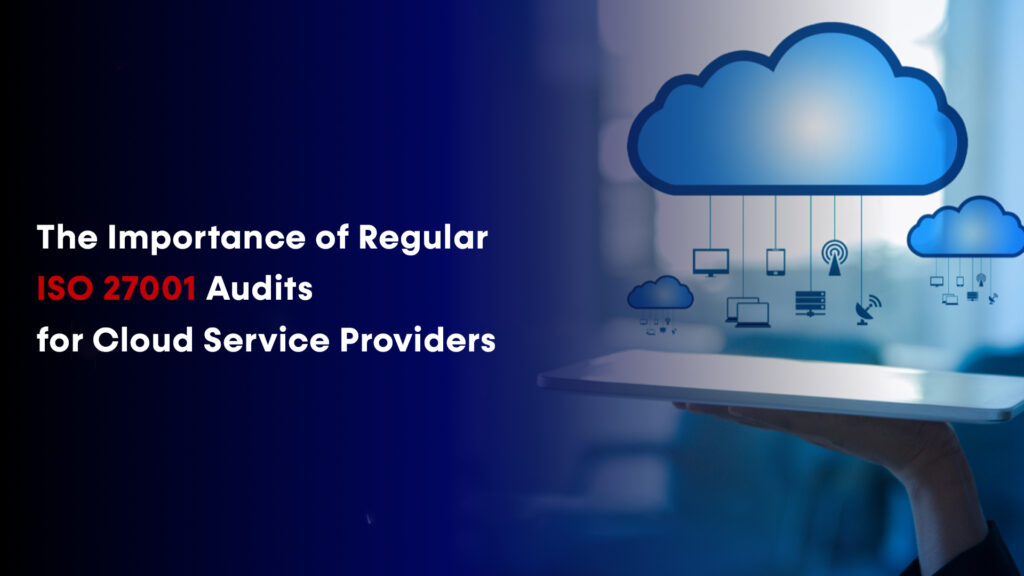
In contemporary cyberspace, cloud service providers (CSPs) are increasingly being held accountable for their safeguarding measures and for adhering to worldwide requirements. ISO 27001 is among the most known modules concerning risk data governance. This standard defines the requirement of the creation, realization, maintenance, and continuous improvement of the system for management of information security. Regular assessments towards this standard are not just useful, they are vital for CSPs. It will help ensure protection, compliance, and trust with their customers.
Understanding ISO 27001 Audits
ISO 27001 audits consist of an authorized inspection of a CSP’s ISMS. This is done in order to determine its conformity to the requirements prescribed by the ISO 27001 standard. These audits assess whether the security controls of an organization are sufficient to ensure sensitive data protection against any threats and vulnerabilities. The procedure consists of internal audits, performed through the company itself. And the external audits are carried out through authorized certification bodies. The number one targets of those audits include:
- Validation of Compliance: Ensuring that the CSP meets the requirements set forth in ISO 27001 and distinctive applicable policies.
- Risk Assessment: Outlining the possible risks which reside in the cloud environment. In a response, implementing corrective action controls that can alleviate those risks.
- Continuous Improvement: Giving guidance on how protection functions can be further developed or improved.
The Role of Audits in Security Assurance
Semi-Annual ISO 27001 audits are crucial in ensuring whether risks of cloud services are mitigated or not. If not, are planned for and addressed. Addressing any warnings and weaknesses in the systems is key in making CSPs more inclined towards providing safer and more interactive interfaces for their users. This approach is critical because cyber threats are constantly changing and pose a significant risk to any organization. Audits additionally assist in setting up a subculture of protection in the business enterprise. They encourage constant tracking and development of protection practices. This makes sure that every personnel recognizing their roles in shielding sensitive data. This cultural shift is crucial for fostering environment in which protection is prioritized at all stages of the business.
Compliance with Regulatory Standards
For many businesses, compliance with policies including GDPR, HIPAA, or PCI DSS is non-negotiable. Regular ISO 27001 audits assist CSPs exhibit compliance with those policies by validating their data protection practices. Non-compliance can result in large penalties, legal ramifications, and loss of consumer trust. Therefore, keeping ISO 27001 certification through regular audits is critical for CSPs running in regulated industries. Moreover, many customers require their provider companies to conform with ISO 27001 as a part of contractual agreements. This requirement can restrict a CSP’s potential to attract or keep customers if they fail to illustrate ongoing compliance through everyday audits. Thus, everyday ISO 27001 audits are not simply a bureaucratic exercise; they are essential to company’s continuity and customer relationships.
Building Trust with Clients
Strong relations among firms are based on trust and with the rapid growing industry of Cloud Services, trusting a service provider with one’s data is a daunting task as sensitive information is at stake. ISO 27001 certification which are done by CSPs are a trademark that ensures users that their data will not be leaked or compromised while being worked upon. ISO Certification is one of many certifications that signal trust in users. It particularly demonstrates that strong practices in information security are in place and being put to good use. Transparency performs an essential function as the customers appreciate that their service provider undergoes rigorous checks to make sure compliance and safety. This transparency fosters more robust partnerships and may even grow to be a competitive benefit in a crowded marketplace.
Enhancing Operational Efficiency
Beyond safety and compliance, regular ISO 27001 audits can result in stepped-forward operational performance within CSPs. The audit system often uncovers inefficiencies in present approaches or technology that may be optimized for higher performance. By addressing those inefficiencies, businesses can lessen charges whilst improving service delivery. Additionally, the insights gathered from audits can assist CSPs higher aligning their operations with industry quality practices. This alignment now no longer only improves internal approaches but also complements the general quality of service supplied to customers.
Conclusion
In conclusion, regular ISO 27001 audits are critical for cloud service companies looking to keep strong safety measures. This ensures compliance with regulatory requirements, establishes trust with customers, and enhances operational performance. As cyber threats hold to adapt and regulatory landscapes become more complex, the significance of those audits cannot be overstated. CSPs should view ISO 27001 audits as a strategic vital that underpins their complete business model. If a company commits to regular audits and fostering a tradition of non-stop development in data safety management. Then the cloud service providers can shield their operations against rising threats. At the same time, making sure they meet the expectancies of their customers and regulators alike.
Ultimately, investing in regular ISO 27001 audits is an investment in the future resilience. Moreover, fulfillment of cloud service providers in an increasingly aggressive and competitive digital world. For more information, visit our website.
